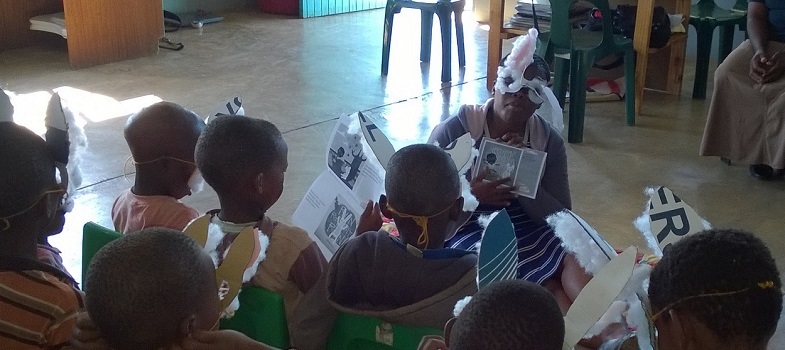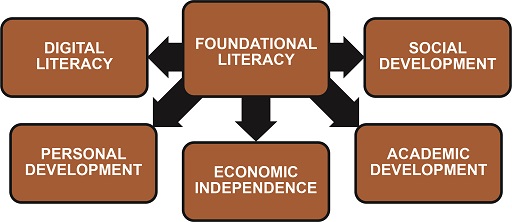Foundational literacy
Early reading is part of ‘foundational literacy’. We see literacy as being about much more than learning to read and write. Being literate enables someone to be an active participant in the social and economic life of the community in which they live. Literacy is at the heart of human wellbeing.
Throughout this course, we will use the terms ‘foundational literacy’ and ‘literacy’, as well as talking about ‘early reading’. We see early reading as being part of literacy. Some of the activities we will introduce you to support children’s literacy development, whilst others will be specifically about early reading.
In order for children to develop as readers they need a literacy curriculum that motivates and inspires them and one that understands the important role of foundational literacy in learning.
Activity 1.1: The importance of foundational literacy
One of the course writing team was thinking about the importance of foundational literacy and produced the diagram below. For them, reading and writing has a professional role as well supporting social and personal development.
Within your context, why is foundational literacy so important? Think about foundational literacy in your personal life and in your professional contexts. Draw a diagram like this one in your study notebook to capture your ideas.
In your study notebook, find a way of recording your reflections of being a reader and writer. If you wish, share your thoughts with a colleague.
This course is based on these principles of foundational literacy:
- Literacy is meaningful and purposeful.
- Literacy learning rests on a foundation of oral language.
- The many elements of reading and writing are interdependent.
- Literacy learning is a recursive process, requiring the active participation of well-motivated children.
- Teachers need to be readers and writers themselves so they can model for children literate ways of behaving and participating in literate communities.
- Children’s first experiences of literacy learning should be in a language with which they are completely familiar.
- Effective literacy learning depends on the availability and skilled use of appropriate resources, which may include digital technologies as well as attractive reading texts and simple writing materials.
- Reading and writing are complex; teachers need many different strategies to ensure the success of all children.
Something to think about: Reflections on being an adult reader and writer. Re-read the eight principles listed above and choose the one that you think is the most important to you.
Central to being literate is being able to read fluently with understanding. This course will help you to become a more effective teacher of early literacy by showing you a number of active learning approaches and showing you how to create and access resources that will support children’s early reading.
Introduction




